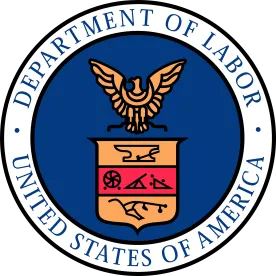On January 8, 2019, the DOL announced Secretary Alexander Acosta’s appointment of three new members to the Administrative Review Board (ARB), filling vacancies that had been open for months, and marking the first appointments to the ARB of the Trump Administration.
The ARB issues final agency decisions on behalf of the Secretary of Labor in cases arising under a number of worker protection laws, including the whistleblower-protection provision of SOX. Cases considered by the ARB arise upon appeal from a decision of an ALJ and the parties may appeal the ARB’s decisions to federal district or appellate courts.
All three new appointees were chosen from within the DOL. William Thomas Barto, who will serve as the chair of the ARB, previously served as an Administrative Law Judge for the DOL. James A. Haynes most recently served as an Appellate Administrative Law Judge for the Employees Compensation Appeals Board. Daniel T. Gresh previously worked as an attorney for the ARB. The new members will serve two-year terms. The ARB consists of a maximum of five members and two vacancies still remain open.
The membership of the ARB is significant, as previous boards have issued widely-divergent decisions regarding the scope of the whistleblower protection laws, which have in turn influenced the courts’ interpretation of those laws. For example, in Platone v. FLYi Inc., ARB Case No. 04-154 (Sept. 29, 2006), the Bush-era ARB introduced an employer-friendly standard for a SOX whistleblower complaint, requiring the whistleblower to describe conduct that “definitively and specifically” relates to one of the six categories of unlawful acts set forth in the statute. That standard was adopted by the First, Second, Fourth, Fifth and Ninth Circuits. But, in 2011, the Obama-era ARB abrogated Platone in Sylvester v. Parexel International LLC, No. 07-123 (ARB May 25, 2011), and dramatically lowered the bar for what constitutes “protected activity” under SOX, holding that an employee’s complaint need not “definitively and specifically” relate to an enumerated legal violation, and that complainants only had to show that they reasonably believed the conduct complained about violated one of the laws enumerated in SOX. Federal courts, including the Second, Third, Sixth and Tenth Circuits, subsequently adopted the ARB’s more liberal Sylvester standard.
The ARB has not issued any decisions since July 2018. This more than five-month hiatus is unprecedented since the ARB was established in May 1996, and we expect that the board will issue a flurry of decisions in the coming months as it works through a backlog of cases. Given the new membership of the board, we would not be surprised to see further developments in the ARB’s shifting interpretation of the whistleblower laws.




 />i
/>i

